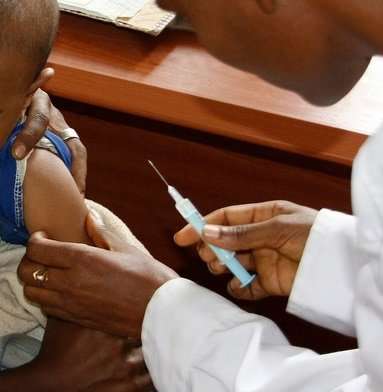Brief education intervention boosts tetanus vaccination rates in rural India

Education of mothers on the benefits of tetanus vaccination increased immunization coverage in a randomized trial set in rural India, according to new research this week in PLOS Medicine by Timothy Powell-Jackson of the London School of Hygiene and Tropical Medicine, UK, and colleagues.
Only 51% of children aged 12 through 23 months are fully immunized in Uttar Pradesh, India. In their trial, the researchers identified 722 mothers in Uttar Pradesh with children aged 0 to 36 months who had not yet received all three doses of the DTP (diphtheria, pertussis, tetanus) vaccine. Mothers were randomized into three groups: one group received home visits with education about the health risks of tetanus in an unvaccinated child; another received home visits with education about the health benefits of vaccination; and a third group did not receive home visits.
In the group that received no intervention, 28% of children had received all DTP immunizations at the study's 8-month follow-up. In the groups that had received either type of intervention, 43% of children completed the immunization schedule (Risk Difference: 22%, 95% CI: 14% to 30%, p < 0.001). There were no significant differences between the two intervention groups. In addition to the impact on DPT, the interventions increased the rate of measles vaccination by 22% (RD: 22%, 95% CI: 14% to 30%, p< 0.001) and the rate of full immunization by 14% (RD: 14%, 95% CI: 8% to 21%, p< 0.001). The cost per disability-adjusted life year (DALY) averted was $186, making the interventions highly cost-effective with respect to the WHO recommended threshold of GDP per capita ($793 in Uttar Pradesh).
Broad generalizability beyond the study setting is uncertain, and the limited sample size meant that the study was not able to exclude the possibility of modest differences between the two intervention groups, or determine which aspects of the interventions were effective. Nonetheless, the trial provides evidence of efficacy that merits further investigation. The authors state, "in contexts where knowledge and awareness are a key binding constraint, interventions that provide information to parents and carers of unvaccinated children have the potential to be a simple and cost-effective way of increasing demand for immunization."
More information: Powell-Jackson T, Fabbri C, Dutt V, Tougher S, Singh K (2018) Effect and cost-effectiveness of educating mothers about childhood DPT vaccination on immunisation uptake, knowledge, and perceptions in Uttar Pradesh, India: A randomised controlled trial. PLoS Med 15(3): e1002519. doi.org/10.1371/journal.pmed.1002519



















